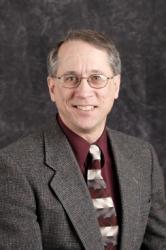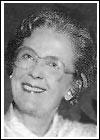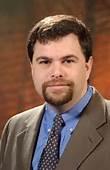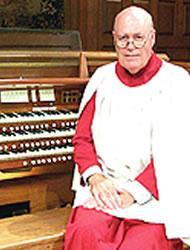Planning worship?
Check out our sister site, ZeteoSearch.org,
for 20+ additional resources related to your search.
- |
User Links
Person Results
Gregg DeMey
Scripture: Deuteronomy 6:4-12 Author of "Unless the Lord Builds the House" in Lift Up Your Hearts Gregg DeMey (b. 1972) was born in Grand Rapids, MI, studied at Calvin College (BA Music Theory and Composition), and graduated from Calvin Theological Seminary in 1998 (MTS) and 2006 (M.Div). He served as worship pastor at Granite Springs in Sacramento, CA; as a church planter at Lakeside Church in Ludington, MI; and is currently the Teaching Pastor at Elmhurst Christian Reformed Church in Elmhurst, IL.
Gregg DeMey
Gregg DeMey
Lincoln Brewster
Scripture: Deuteronomy 6:5 Author of "Love the Lord" in Worship and Song
Lincoln Brewster
Joke Ribbers
Scripture: Deuteronomy 6:4 Author of "Wij geloven één voor één (We Believe as One by One)" in Voices Together
Joke Ribbers
Roy Hopp

Scripture: Deuteronomy 6:4-15 Composer of "OLD DOMINION " in Lift Up Your Hearts Roy Hopp (b. 1951) is the Director of Music at Woodlawn Christian Reformed Church in Grand Rapids, MI and Adjunct Professor of Choral Music at Calvin Theological Seminary, where he directs the Calvin Theological Seminary Choir.
Hopp graduated from Calvin College with a Bachelor’s Degree in Music Education and from Michigan State University with a Master’s Degree in Choral Conducting. He did further studies in church music and composition with Richard Hillert at Concordia University in River Forest, IL. He has served as a Director of Music in churches in West Michigan and Colorado for the past twenty years.
His choral compositions have appeared in the catalogues of AugsburgFortress, earthsongs, GIA Publications, Inc., Kjos, MorningStar, and Selah and his hymn tunes have been published in hymnals and collections in the United States, Canada, England, Wales and Scotland.
Emily Brink
Roy Hopp
Paul Detterman
Scripture: Deuteronomy 6:4-12 Arranger of "NADA" in Lift Up Your Hearts Paul Detterman is currently the Executive Director of Presbyterians for Renewal and the Fellowship of Presbyterians. He has his bachelor’s degree in Sacred Music from Illinois Wesleyan University, a Master of Church Music from Concordia University and a Master of Divinity and Doctor of Ministry from Boston University School of Theology. Detterman is a composer of choral, solo, handbells, and organ music. He has served the Church as a Director of Music and a Pastor, and is a frequent preacher, worship leader, and conference/retreat speaker. He has published numerous works on worship, and was a contributing consultant for Lift Up Your Hearts.
Bert Polman
Paul Detterman
Bernard Smilde
1922 - 2014 Scripture: Deuteronomy 6:4 Composer of "KLEIN CREDO" in Voices Together
Bernard Smilde
Austin C. Lovelace

1919 - 2010 Scripture: Deuteronomy 6:5 Author of "Love the Lord" in Songs for Life LOVELACE, AUSTIN C., AAGO: (1919-2010) D.S.M., Union Theological Seminary, New York. Recitals, workshops, festivals, lectures in 17 different denominations in 45 states as well as in Finland, Scotland, Canada, and New Zealand. Past President, Fellow, and Life member, HSUSC. 50 year member, Hymn Society of Great Britain and Ireland. Author of five books; co-editor and consultant of denominational and other hymnals. Longtime member, ASCAP. Composer of over 800 compositions published by 20 publishers. Organist for the 2nd Assembly of the World Council of Churches, 1954. Dean of the first North Carolina Chapter, AGO. Chairman of the 1968 National Convention, AGO, in Denver. Two terms on the National Council, AGO. Co-founder, with Tom Matthews, of the North Shore Chapter, AGO. Minister of Music Emeritus. Denver Chapter, AGO.
Austin C. Lovelace (from In Melody and Song, Darcey Press, 2014)
Austin C. Lovelace
Mary Jackson Cathey

b. 1926 Scripture: Deuteronomy 6:4-7 Author of "We Come to Worship in Praise of Our Maker" in New Hymns of Hope Mary Jackson Cathey (b. 1926) was born in Florence, SC, and educated at Winthrop University, Rock Hill, SC. She received an advanced degree from Union Seminary - Presbyterian School of Christian Education in Richmond. As a Christian Educator she finds hymn text writing a profound way to express her faith. Her hymns have won contests sponsored by The Hymn Society in the United States and Canada, and a number of her poems have been published by John Knox Press, The Pilgrim Press, and Hope Publishing. She has four hymns to her credit in The Presbyterian Hymnal (1990) and others published by Selah Press, Choristers Guild, and Zimbel Press. She is an elder at the National Presbyterian Church in Washington, DC.
--www.hopepublishing.com
==========================
Mary Jackson Cathey is the Director of Religious Education at the Bethesda Presbyterian Church, Bethesda, Maryland. She formerly served in a similar capacity in the First Presbyterian Church, Anderson, South Carolina. She obtained her M.R.E. degree from the Assembly's Training School, Richmond, Virginia, in 1953; and her A.B. from Winthrop College, Rock Hill, South Carolina, in 1947. She was married recently to Mr. Henry M. Cathey of Bethesda. She is the author of one of the 1956 Youth Hymns entitled "Come forth, O Christian Youth."
--Twelve New World Order Hymns, 1958. Used by permission.
Mary Jackson Cathey
David Gambrell

Scripture: Deuteronomy 6:4-9 Author of "The Lord Is God" in Glory to God Rev. David Gambrell is associate for worship in the PC(USA) Office of Theology
and Worship and editor of Call to Worship, and an ex officio advisor to the hymnal committee.
Education: Ph.D., liturgical studies
Garrett-Evangelical Theological Seminary
Austin Presbyterian Theological Seminary
--www.presbyterianmission.org/ministries
David Gambrell
Ronald F. Krisman
Person Name: Ronald F. Krisman, n. 1946 Scripture: Deuteronomy 6:5 Translator of "Amarte Sólo a Ti, Señor (To Love You, Lord)" in Oramos Cantando = We Pray In Song
Ronald F. Krisman
Sharny Russell
b. 1955 Person Name: Sharny Russell Schlencker, 1955- Scripture: Deuteronomy 6:4 Author of "One God, one living God" in Together in Song
Sharny Russell
Michael Schneider
Scripture: Deuteronomy 6:5 Author of "O God, We Read the Holy Law" in Voices Together
Michael Schneider
Scott R. Troyer
Scripture: Deuteronomy 6:5 Translator of "O God, We Read the Holy Law" in Voices Together
Scott R. Troyer
Stuart Townend
Scripture: Deuteronomy 6:4-5 Author of "Kyrie eleison, Have Mercy" in Voices Together Stuart Townend (b. 1963) grew up in West Yorkshire, England, the youngest son of an Anglican vicar. He started learning piano at a young age, and began writing music at age 22. He has produced albums for Keith Routledge and Vinesong, among many others, and has also released eight solo albums to date. Some of his better-known songs include “How Deep the Father’s Love,” “The King of Love,” and “The Power of the Cross.” He continues to work closely with friends Keith and Kristyn Getty, and is currently a worship leader in Church of Christ the King in Brighton, where he lives with wife Caroline, and children Joseph, Emma and Eden.
Laura de Jong
Stuart Townend
Keith Getty
b. 1974 Scripture: Deuteronomy 6:4-5 Author of "Kyrie eleison, Have Mercy" in Voices Together Keith Getty (b. December 16, 1974) is a world-renowned modern hymn writer. Keith developed a passion for writing good songs for the church in his twenties, and began writing for his small Baptist church. He writes and performs with his wife, Kristyn and they regularly tour the United States and the United Kingdom. (Also known as Julian Keith Getty)
Laura de Jong
Keith Getty
Charlotte E. Couchman
Scripture: Deuteronomy 1-34 Author of "Deuteronomy" in Each Little Dewdrop Wife of Thomas D. Couchman.
Charlotte E. Couchman
Charles Rus
b. 1960 Person Name: Charles Rus (b. 1960) Scripture: Deuteronomy 6:4 Composer of "AUDI, ISRAEL" in Wonder, Love, and Praise
Charles Rus
John Weaver

b. 1937 Scripture: Deuteronomy 6:4-9 Harmonizer of "O WALY WALY" in Songs of Grace Dr. John Weaver
Organist/Music Director, Emeritus
John Weaver retired at the end of May 2005, after 35 years of ministry as Director of Music and Organist at Madison Avenue Presbyterian Church in New York City. During his tenure here, he also served as Head of the Organ Department at the Curtis Institute of Music in Philadelphia from 1972 to 2003 and Chair of the Organ Department at the Juilliard School from 1987 to 2004. The American Organist named him among the 101 most notable organists of the 20th century.
Weaver traces his love for the "King of Instruments" back to his childhood. Born in the Eastern Pennsylvania town of Mauch Chunk (now called Jim Thorpe), his first introduction to music was through the organ at the First Presbyterian Church where his father was the pastor.
His formal musical studies began at the age of six in Baltimore's Peabody Conservatory when it was discovered that he had perfect pitch. Shortly thereafter he acquired an old harmonium that stimulated his desire to learn to play the organ. At the age of fourteen he began organ study with Richard Ross and George Markey, and the same year he also became organist of a Baltimore church and played his first organ recital. In 1989 John Weaver was honored by The Peabody Conservatory when he was presented with Peabody's Distinguished Alumni Award. He has received honorary Doctor of Music degrees from Westminster College, New Wilmington PA, and The Curtis Institute of Music. He was also elected a member of the North American Academy of Liturgy.
John Weaver's undergraduate study was at The Curtis Institute from which he graduated in 1959 as a student of Alexander McCurdy. That year he was appointed Director of Music at Holy Trinity Lutheran Church in New York City, a post he held for eleven years. During this time he spent two years in the Army as organist/choir-director of the Post Chapel at the United States Military Academy at West Point, and earned a Master of Sacred Music degree from Union Theological Seminary, studying with Robert Baker. In 1968 he founded a highly successful Bach Cantata Series at Holy Trinity, conducting his choir and orchestra in two seasons of these works. At these services he also played most of the major organ works of Bach and numerous chorale-preludes. At the Madison Avenue Presbyterian Church he annually conducts a large concert choir, The St. Andrew Chorale, in several major works with orchestra. In addition to his teaching at The Curtis Institute and The Juilliard School, he has served Westminster Choir College, Union Theological seminary and the Manhattan School of Music. He has written numerous articles for organ and church music magazines and has served as President of the Presbyterian Association of Musicians.
Dr. Weaver has been active as a concert organist since coming under management in 1959. He has played throughout the USA, Canada, Western Europe, the United Kingdom, and Brazil. Each year finds him in many different parts of the country playing recital programs drawn from his large repertoire of memorized works from every important era and national school of organ literature. His wife, Marianne, an excellent flutist whose teachers include Kincaid and Rampal, frequently adds an extra and very special stop to the organ by appearing on these programs.
John Weaver has performed on national television and radio network programs in the US and Germany. He has made recordings for Aeolian-Skinner, The Wicks Organ Company, the Klais Orgelbau of Germany, a CD on Gothic Records for the Schantz Organ Company, and a recent recording on the Pro Organo label on the new Reuter organ at University Presbyterian Church in Seattle. His published compositions for organ, chorus/organ and flute/organ are widely performed.
Weaver has made several concerto appearances with the Portland, Maine Symphony, the Musica Sacra Orchestra and the Harrisburg Symphony. He has played solo recitals at numerous regional and national conventions of the American Guild of Organists as well as the 1987 Internationalhttp://www.mapc.com Congress of Organists in Cambridge, England. He has been guest artist with the Chamber Music Society of Lincoln Center at Alice Tully Hall and Washington's Kennedy Center, and has played solo recitals at Boston Symphony Hall, Alice Tully Hall, Philadelphia's Academy of Music, Chicago's Orchestra Hall, Cleveland's Orchestra Hall, as well as colleges, cathedrals and churches throughout the US.
-- http://www.mapc.com
John Weaver
C. G. Gläser
1784 - 1829 Person Name: Carl Gotthelf Gläser Scripture: Deuteronomy 6:4-9 Composer of "AZMON" in Glory to God Carl Gotthelf Gläser Germany 1781-1829. Born at Weissenfels, Burgenlandkreis, Sachsen-Anhalt, Germany, he received musical training from his father, after which he attended St. Thomas school in Leipzig. He became an author and composer. At Barmen he taught voice, piano, and violin. He also wrote and conducted chorale music. He died at Barmen.
John Perry
C. G. Gläser
Lowell Mason

1792 - 1872 Person Name: Lowell Mason Scripture: Deuteronomy 6:4-9 Arranger of "AZMON" in Glory to God Dr. Lowell Mason (the degree was conferred by the University of New York) is justly called the father of American church music; and by his labors were founded the germinating principles of national musical intelligence and knowledge, which afforded a soil upon which all higher musical culture has been founded. To him we owe some of our best ideas in religious church music, elementary musical education, music in the schools, the popularization of classical chorus singing, and the art of teaching music upon the Inductive or Pestalozzian plan. More than that, we owe him no small share of the respect which the profession of music enjoys at the present time as contrasted with the contempt in which it was held a century or more ago. In fact, the entire art of music, as now understood and practiced in America, has derived advantage from the work of this great man.
Lowell Mason was born in Medfield, Mass., January 8, 1792. From childhood he had manifested an intense love for music, and had devoted all his spare time and effort to improving himself according to such opportunities as were available to him. At the age of twenty he found himself filling a clerkship in a banking house in Savannah, Ga. Here he lost no opportunity of gratifying his passion for musical advancement, and was fortunate to meet for the first time a thoroughly qualified instructor, in the person of F. L. Abel. Applying his spare hours assiduously to the cultivation of the pursuit to which his passion inclined him, he soon acquired a proficiency that enabled him to enter the field of original composition, and his first work of this kind was embodied in the compilation of a collection of church music, which contained many of his own compositions. The manuscript was offered unavailingly to publishers in Philadelphia and in Boston. Fortunately for our musical advancement it finally secured the attention of the Boston Handel and Haydn Society, and by its committee was submitted to Dr. G. K. Jackson, the severest critic in Boston. Dr. Jackson approved most heartily of the work, and added a few of his own compositions to it. Thus enlarged, it was finally published in 1822 as The Handel and Haydn Society Collection of Church Music. Mason's name was omitted from the publication at his own request, which he thus explains, "I was then a bank officer in Savannah, and did not wish to be known as a musical man, as I had not the least thought of ever making music a profession." President Winchester, of the Handel and Haydn Society, sold the copyright for the young man. Mr. Mason went back to Savannah with probably $500 in his pocket as the preliminary result of his Boston visit.
The book soon sprang into universal popularity, being at once adopted by the singing schools of New England, and through this means entering into the church choirs, to whom it opened up a higher field of harmonic beauty. Its career of success ran through some seventeen editions. On realizing this success, Mason determined to accept an invitation to come to Boston and enter upon a musical career. This was in 1826. He was made an honorary member of the Handel and Haydn Society, but declined to accept this, and entered the ranks as an active member. He had been invited to come to Boston by President Winchester and other musical friends and was guaranteed an income of $2,000 a year. He was also appointed, by the influence of these friends, director of music at the Hanover, Green, and Park Street churches, to alternate six months with each congregation. Finally he made a permanent arrangement with the Bowdoin Street Church, and gave up the guarantee, but again friendly influence stepped in and procured for him the position of teller at the American Bank.
In 1827 Lowell Mason became president and conductor of the Handel and Haydn Society. It was the beginning of a career that was to win for him as has been already stated the title of "The Father of American Church Music." Although this may seem rather a bold claim it is not too much under the circumstances. Mr. Mason might have been in the average ranks of musicianship had he lived in Europe; in America he was well in advance of his surroundings. It was not too high praise (in spite of Mason's very simple style) when Dr. Jackson wrote of his song collection: "It is much the best book I have seen published in this country, and I do not hesitate to give it my most decided approbation," or that the great contrapuntist, Hauptmann, should say the harmonies of the tunes were dignified and churchlike and that the counterpoint was good, plain, singable and melodious.
Charles C. Perkins gives a few of the reasons why Lowell Mason was the very man to lead American music as it then existed. He says, "First and foremost, he was not so very much superior to the members as to be unreasonably impatient at their shortcomings. Second, he was a born teacher, who, by hard work, had fitted himself to give instruction in singing. Third, he was one of themselves, a plain, self-made man, who could understand them and be understood of them."
The personality of Dr. Mason was of great use to the art and appreciation of music in this country. He was of strong mind, dignified manners, sensitive, yet sweet and engaging.
Prof. Horace Mann, one of the great educators of that day, said he would walk fifty miles to see and hear Mr. Mason teach if he could not otherwise have that advantage.
Dr. Mason visited a number of the music schools in Europe, studied their methods, and incorporated the best things in his own work. He founded the Boston Academy of Music. The aim of this institution was to reach the masses and introduce music into the public schools. Dr. Mason resided in Boston from 1826 to 1851, when he removed to New York. Not only Boston benefited directly by this enthusiastic teacher's instruction, but he was constantly traveling to other societies in distant cities and helping their work. He had a notable class at North Reading, Mass., and he went in his later years as far as Rochester, where he trained a chorus of five hundred voices, many of them teachers, and some of them coming long distances to study under him. Before 1810 he had developed his idea of "Teachers' Conventions," and, as in these he had representatives from different states, he made musical missionaries for almost the entire country. He left behind him no less than fifty volumes of musical collections, instruction books, and manuals.
As a composer of solid, enduring church music. Dr. Mason was one of the most successful this country has introduced. He was a deeply pious man, and was a communicant of the Presbyterian Church. Dr. Mason in 1817 married Miss Abigail Gregory, of Leesborough, Mass. The family consisted of four sons, Daniel Gregory, Lowell, William and Henry. The two former founded the publishing house of Mason Bros., dissolved by the death of the former in 19G9. Lowell and Henry were the founders of the great organ manufacturer of Mason & Hamlin. Dr. William Mason was one of the most eminent musicians that America has yet produced.
Dr. Lowell Mason died at "Silverspring," a beautiful residence on the side of Orange Mountain, New Jersey, August 11, 1872, bequeathing his great musical library, much of which had been collected abroad, to Yale College.
--Hall, J. H. (c1914). Biographies of Gospel Song and Hymn Writers. New York: Fleming H. Revell Company.
Lowell Mason
Tommy Wheeler

? - 2015 Scripture: Deuteronomy 6:5 Composer of "[For I shall love the Lord my God]" in Gospel Gems Tommy E. Wheeler came from a singing family. His father, Palmer, and uncle Roy sang gospel music in the first Stamps Quartet. He studied music at Abilene Christian College (now University) and composed and wrote several gospel songs, including I Love The Lord, The Way of Truth, I Met The Master Face to Face, and Live For Him.
Source: Gospel Gems: A Collection of Songs by Palmer and Tommy Wheeler. - M. Lynn
Tommy Wheeler


 My Starred Hymns
My Starred Hymns


